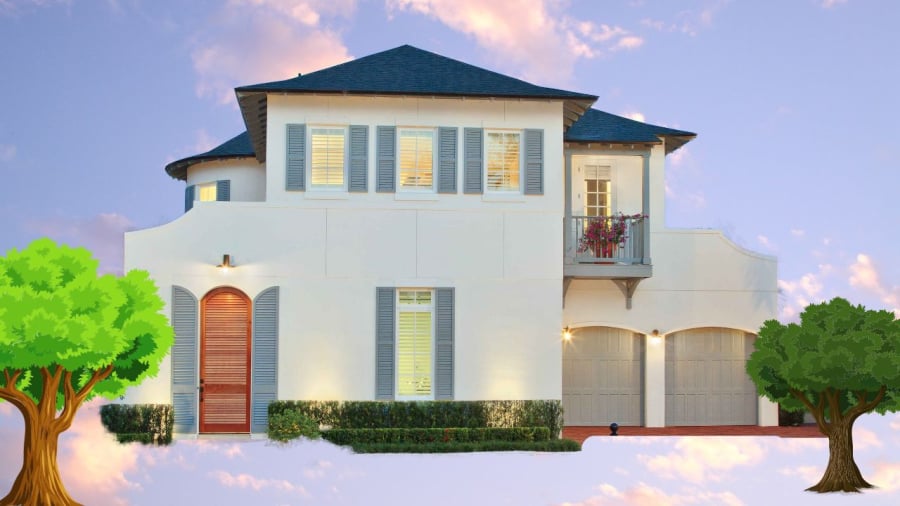Don’t Build a Large House Even If You Have the Money
It’s understandable to want to build a large and extravagant house to showcase your success and wealth. However, the old adage “money can’t buy happiness” rings true, especially when it comes to constructing a grandiose home.
Building a large house is undoubtedly an expensive endeavor. But aside from the financial costs, there are several other considerations to keep in mind. Here are some reasons why building a massive house might not be the best decision:
– Feng shui: In the world of feng shui, a large house is not always considered auspicious. A bigger space requires more energy to keep it warm, which can deplete the yang energy in the home. Additionally, a house that is disproportionately large compared to its occupants can create a sense of coldness and loneliness, affecting the health and well-being of the homeowners.
– Sense of Overwhelm: A large house can make one feel small and insignificant, leading to a sense of fear and disorientation.
– Maintenance: A bigger house means more space to clean and maintain. This can be exhausting, especially for older individuals or families with many members. The sheer size of the house can make it challenging to keep it spotlessly clean at all times.

The Pitfalls of a Large House
– Loneliness and Isolation: Living in a massive house can exacerbate feelings of loneliness and isolation. The vast spaces can make one feel alone and distant from others.
– Family Discord: A large house can create physical distance between family members, providing each person with their own space to retreat to. This can hinder open communication and foster a sense of detachment within the family, leading to a decline in familial bonds and harmony.
– Spiritual Implications: In some cultures, it is believed that a large house can attract negative spiritual entities and create an environment conducive to their presence. This can bring about a sense of gloom and invite unwanted energies into the home.
Additionally, building a large house can make one a target of envy and scrutiny. It may even lead to unwanted attention, legal issues, or financial troubles down the line. Thus, it is wise to consider the potential consequences before embarking on such a project.
Don’t Buy Riverside Land, Even If You’re Desperate
When it comes to purchasing land, especially when you’re in a desperate situation, you might be tempted to opt for cheaper options like riverside plots. However, the old saying, “don’t buy land by the river, even if you’re desperate,” holds valuable wisdom.
Land by the river is often cheaper due to its proximity to water, which can be a source of flooding and structural instability. Building a house on such land requires extra care and costly foundation work to ensure the structure’s stability. Thus, the initial savings on the land cost may be offset by the increased construction expenses.

The Unstable Nature of Riverside Land
Additionally, living by the river can have health implications. The damp and cold environment can impact your well-being, and if the sun reflects off the water and into your home, it could create an uncomfortable living space, both aesthetically and health-wise. Not to mention, the risk of flooding during heavy rains or storms is a constant threat to your safety and peace of mind.
While riverside land may be affordable, the potential costs and dangers associated with it far outweigh any initial savings. It’s essential to consider the long-term implications of your land purchase and prioritize stability and safety over short-term financial gains.
Are These Beliefs Still Relevant Today?
The beliefs and sayings mentioned above still hold valuable lessons for modern times. While societal norms and technologies have advanced, some fundamental aspects of human life remain unchanged.
For instance, building an excessively large house can still attract unwanted attention and create a sense of isolation within a family. Similarly, purchasing land by the river continues to pose challenges due to flooding risks and the unstable nature of riverside terrain.
However, it’s important to note that these sayings are not absolute rules but rather guidelines informed by the experiences of our ancestors. As with all advice, it’s essential to consider your unique circumstances and make decisions that align with your values and priorities.
Ultimately, the wisdom of our forebears can serve as a valuable guide, but it’s up to us to adapt and apply it in ways that suit our modern lives and needs.
This information is for reference only.





































